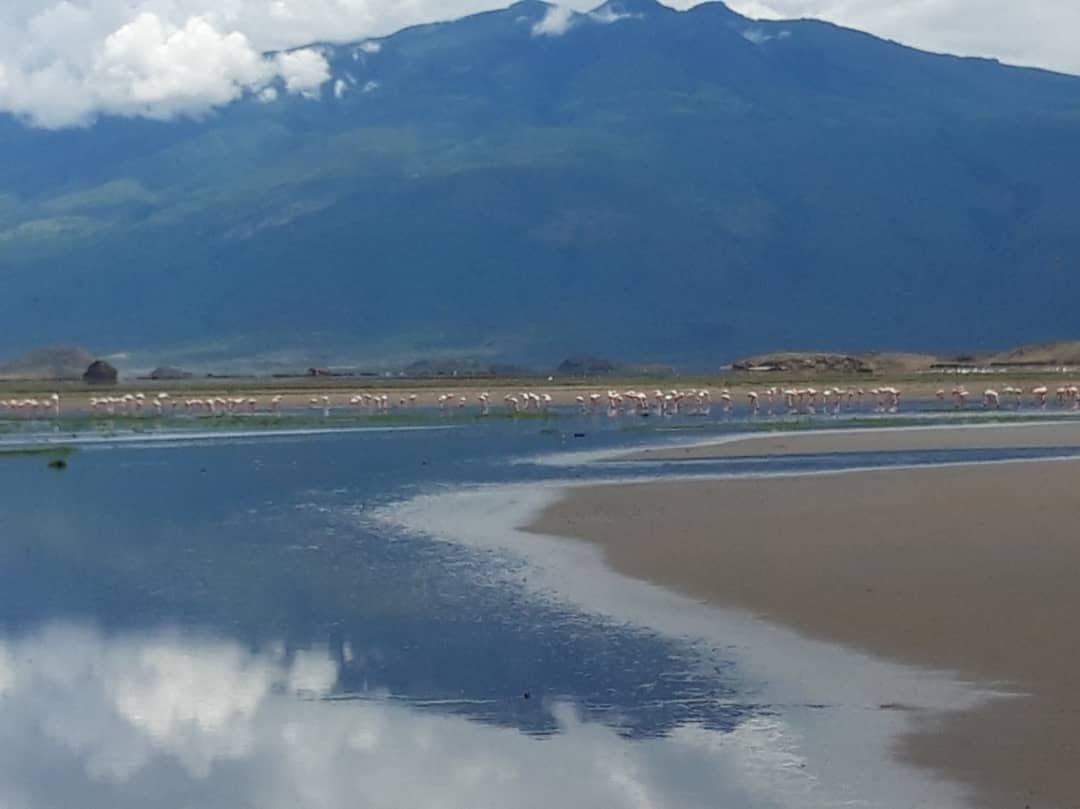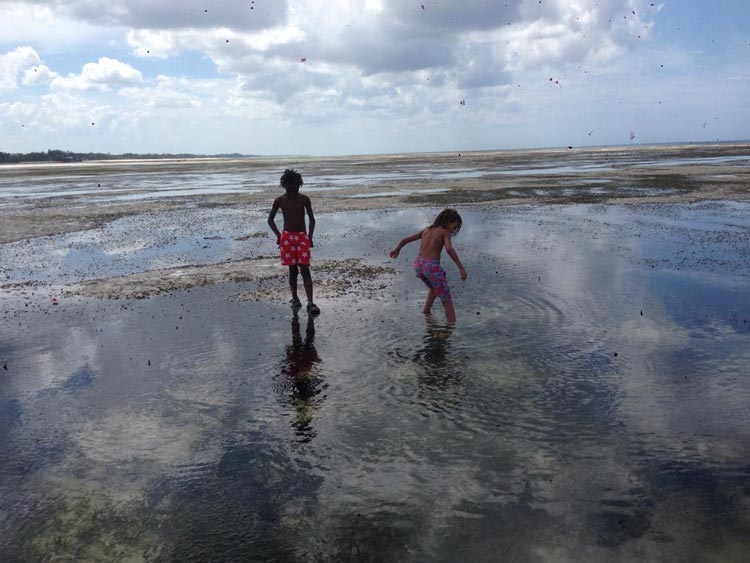
We are reader-supported and may earn a commission on purchases made through links in this article.
Arusha, Tanzania, is the “Gateway to the Serengeti,” the “Geneva of Africa” and the largest city near the famous northern attractions.
It’s a tourist town, and khaki-swathed crowds with safari hats regularly descend upon our city as they make their way to national parks or to climb Mount Kilimanjaro.

Being a Good Tourist in Tanzania
Being a white expat, I get mistaken for a tourist all the time. It’s okay. I don’t know how looking like a tourist has become a thing to be avoided. Besides the understandable care to ensure your passport isn’t stolen, what’s the issue with looking like a tourist?
Pick your preferred title: wanderer, traveler, adventurist, volunteer or explorer – you are visiting Tanzania. If you are a visitor, what’s so bad about looking like one?
What to Wear in Tanzania
There are practical reasons for wearing khaki-colored clothes on safari: attract fewer insects such as tsetse flies and mosquitoes, and blend in with nature if you are participating in a hike. But if you don’t want to wear khaki on safari? As long as you are decently clothed, Tanzanian society doesn’t care what you wear.
Crop-tops on the public street are frowned upon, but if you wear heels or hiking boots, no one is going to care but you.
And your hat? Seriously, we don’t care if you wear one, but you may – if you ditch it and end up with a sunburn.
While visitors try to avoid looking like tourists, I assure you that those of us here in Arusha and the surrounding areas usually already know you are a tourist.
We care more about what type of tourist you are: your behavior while visiting this beautiful country is what we are judging you on. Instead of focusing solely on your attire, please give a bit of thought to being a good tourist.
How to Be a Good Tourist:
 Complaints
Complaints
GOOD: Discuss any complaints immediately with your guide, tour director or host. Sometimes things are not perfect or should be improved.
Whether the issue is food or a problem with your accommodations it is OK to say something – politely, of course, but you don’t need to keep silent. Rooms can be changed (or upgraded), and I know a tour group that switched guides mid-safari because they preferred one who was fluent in another language.
Guests’ needs, requests and complaints are usually taken very seriously, and many times can be accommodated.
BAD: What is not OK? Keeping silent and then giving a terrible review afterward. If you never voiced your concerns, it is not fair to complain about them publicly later, when no one can do anything to remedy the situation.
A note on this: We recently hosted someone who was very upset about the road conditions. While we are in agreement with this guest, at the end of the day this complaint needs to go to the government responsible for public roads.
It’s a little ridiculous to expect your guide, tour company or host to manage roads, weather conditions or nature. Keep the complaints within reason.

Tipping
GOOD: You are expected to tip. Similar to North America, where it is common practice to tip servers and hotel staff, here in Tanzania it is generally seen as rude not to tip.
Who should you tip? Anyone providing you a hospitality-related service:
Guides
Drivers
Porters (for mountain treks)
Servers
Cooks
Hotel Attendants
Translators
Many tour companies give a suggested tip per day to help you calculate an appropriate amount for your guide, driver and porters. This can be $20-$50 per day depending on the services provided, the remoteness of the safari and the size of your group.
When eating at a restaurant, a good guess is rounding up to the nearest 10,000 in shillings, or 2,000 shillings (roughly $1) per person, depending on the bill.
BAD: Leaving no tip at all. In a restaurant, this might be excused, but forgoing a tip for a porter who has carried your heavy bag up Mount Kilimanjaro? You may not be forgiven that.
And the guide who led your three-day safari, taking on three roles: driver, guide and translator? Oh, he will definitely remember you. But not with fondness if you denied him a tip.
Take care of the environment and never litter; properly dispose of all garbage. Photo by Ree Pashley

Don’t Litter
GOOD: A good traveler does not litter. Ever. There are very few conveniently placed garbage cans throughout national parks, and even less on busy city streets, so you will need to have a reusable water bottle or carry your empties until you can dispose of them.
Bonus points for a good tourist: While trekking or hiking, pick up any litter you find along the trail and properly dispose of it.
BAD: Tossing waste out the car window as you drive down the highway will surely get you punishment in the afterlife. Don’t you dare ruin the environment anywhere, but especially in a country where you are a guest.
It is despicable that visitors complain about dirty cities throughout East Africa, and then I see time and time again tourists littering as they leave a national park.
I have flagged down a car and personally reprimanded all the passengers because someone threw a plastic bottle out the window, and tapped a stranger on the shoulder to point out the food wrapper she casually “dropped.”
Tanzania is my home, and I will defend it from bad tourists’ litter.

Photography
GOOD: Ask before taking photos of people.
It’s not rude to take photos of beautiful women robed in bright colors, as long as you ask first. Even if you don’t speak the language, pointing at your camera and waiting for a response is universally understood.
Ask before photographing any people (including children and babies), homes or property, and pets.
Wild animals, scenery and nature are exempt from this expectation— please, photograph beautiful Tanzania to your heart’s content.
BAD: It is rude to photograph people without asking their permission first. Even if you think you are being discreet with your camera and the individual in focus is unaware, that is not the point. Don’t be that tourist: get consent before photographing.
Cultural Differences
GOOD: Respect others’ cultures.
A polite traveler is intrigued by cultural differences and respectfully asks questions to learn more. Different world views, traditions and religions create diversity. The rich experience of traveling is learning about and experiencing these differences.
Honest, sensitive questions to learn and understand more about the culture you are visiting are welcome.
BAD: Starting debates or mocking differences is inappropriate. No matter how conservatively you dress or how well you tip, you will be labeled a bad tourist if you are ethnocentric. Do not make fun of the country you are visiting; instead, travel with an open and tolerant mind.
Go on and buy that khaki suit and matching hat. Wear your camera around your neck with pride.
If you tip generously, ask before taking that photo and politely inquire about cultural differences, you are going to be warmly embraced as a good tourist.
To be a good tourist, focus less on what you wear and more on how you act.
Inspire your next adventure with our articles below:
Author Bio: First, Ree Pashley fell in love with Tanzania. Shortly after, she fell in love with a Tanzanian man. Now she raises her family, hikes and goes on adventures in the beautiful country. A walking contradiction, she hates ripe bananas but loves fried banana chips.

 Complaints
Complaints